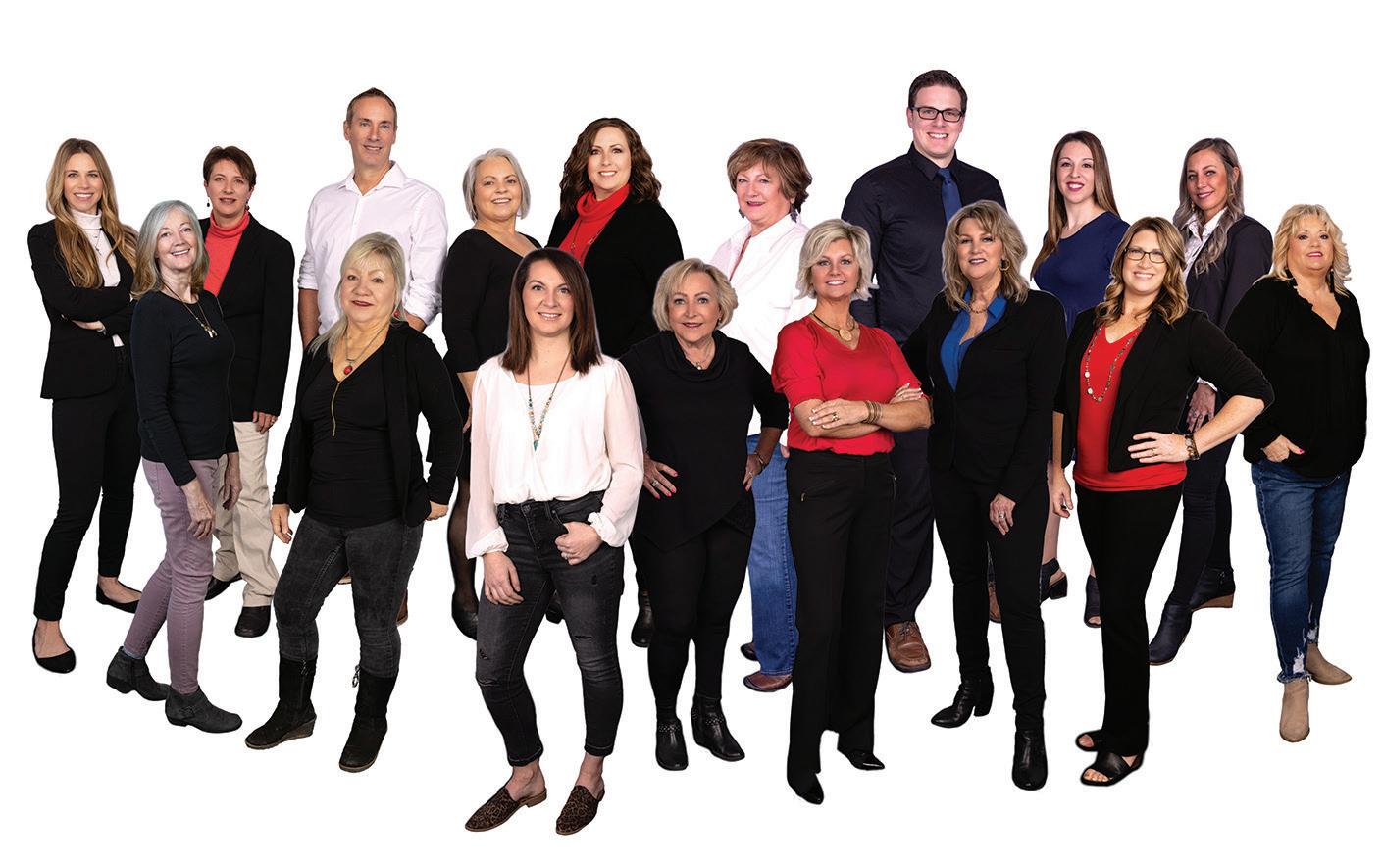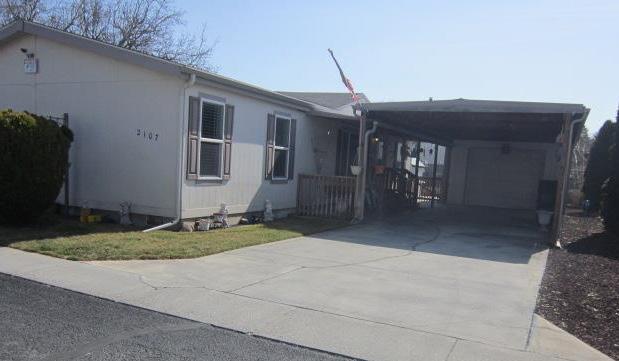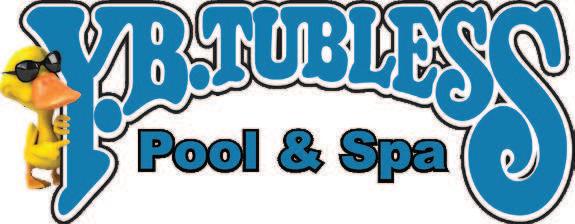YOUR LIFE YOUR HOME,
YOUR RESOURCE FOR ALL THINGS REAL ESTATE YOUR RESOURCE FOR REAL ESTATE


YOUR RESOURCE FOR ALL THINGS REAL ESTATE YOUR RESOURCE FOR REAL ESTATE

 By Lisa Marie Conklin Courtesy of Realtor.com
By Lisa Marie Conklin Courtesy of Realtor.com
If you need a mortgage to buy a home you have your eye on, it’s standard for your lender to order an appraisal of the property.
But when your lender says it’s ordering ahybridappraisalinsteadofatraditional appraisal,whatdoesthatmeanexactly?
Here’s what you need to know about this newer appraisal method and how it workstodeterminethevalueofthehome youwanttobuy.
Beforedivingintothehybridappraisal, it’s essential to understand how an appraisalisusedinthemortgageprocess.
First, your lender needs to confirm the home is worth the agreed-upon sales price you offered to ensure you’re not overborrowing. Lenders have a vested interest in the home appraisal because it protects them from lending more money than they can recoup should you default onyourloanandgointoforeclosure.
The appraisal also protects you as a buyer. For instance, you can add an appraisal contingency clause allowing youtobackoutofthesaleiftheappraisal istoolowtojustifythepurchaseprice.
In a traditional appraisal, an appraiser goestoahomeanddoesathoroughwalkthrough, recording details like square footage, acreage, number of bedrooms andbathrooms,homeimprovements,and additions.
An appraiser also does a market data analysis, which values other homes in thearea,andrecordsthefindingsinthe Uniform Residential Appraisal Report, or URAR.
Thehybridappraisalusesaformalmost identical to the URAR, but the appraiser doesn’tgototheproperty.
“For a hybrid appraisal, the inspection, sketch, and photos are completed by a third party,” says Matthew Love, a HUD/ FHA-approved Certified Residential AppraiseratRealEstateBees.
“Another appraiser, an appraiser trainee, a real estate agent, or a home
inspector can provide this service,” adds Love. “Just as a pit crew collaborates to complete tasks quickly and efficiently, a hybrid appraisal involves multiple professionals working together to completetheappraisalform.”
The hybrid appraisal has been around for about 13 years and was mainly used forforeclosuresandshortsales.
“Intheseinstances,ahybridappraisalis todeterminethehome’sfairmarketvalue but also to confirm the true condition before the home goes into a short sale or foreclosure scenario,” says Alvaro Moreira, owner of the Georgia mortgage companyMoreiraTeam.
And in 2018, Fannie Mae began testing its hybrid appraisal, a method it had worked on for years to speed up and modernize the traditional appraisal process.
But the hybrid appraisal really took off when the COVID-19 pandemic struck in 2020. Then, the hybrid became more relevantasawaytoprovidefastand flexible appraisals, relying more on technology when government stay-at-home orders prevented appraisers from entering people’s houses.
You might wonder how a hybrid stacks up against a traditional appraisal if no one is setting foot in your house. Could something get missed if the appraiser isn’t on-site andrelyingonthird-partyvendors?
The fact that hybrid appraisers haveahighstandardtomeetmight reassureyou.
“Fannie Mae requires that data collectors be professionally trained, have annual background
checks, and the knowledge necessary to complete the property data collection competently,”saysKenonChen,executive vice president of strategy and growth at Clear Capital, an approved Fannie Mae vendor, who has completed more than 250,00 Government Sponsored Enterprise hybridappraisals.
Ahybridappraisalisalsolessexpensive and takes less time to complete as appraisers can focus on evaluating the localmarketandcomparablesalesinstead of managing several appointments and drivingtodifferenthomes.
According to Chen, there are generally fewer customer escalation issues due in part to the required robust, standardized data and the use of mobile technology, which drive a more consistent appraisal processineveryneighborhood.
For the most part, the traditional appraisal remains the gold standard. But thepandemiccatapultedthehybridtothe forefront.
“The knowledge, understanding, and conversations of hybrid appraisals are growing within the lending community,” saysMoreira.
And to give the hybrid appraisal more clout, Fannie Mae recently officially included the hybrid appraisal for singlefamily sellers (manufactured homes, condos, co-ops, and nonresidential real estateareineligible)asoneofitsaccepted options to establish a property’s market value.
Deciding between a hybrid and traditional appraisal lies with the lender, not the buyer. The type of transaction, lenders’rules,andtherulesoftheinvestors theyselltheirloanstodeterminethetype ofappraisalordered.Andbothtypesmust comply with the Uniform Standards of ProfessionalAppraisalPractice.
Whenyou’resellingyourhomethere’s so much to do: find a Realtor®, do touchups, get that balky air conditioner fixed, look into staging… It’s no wonder that sometimes things fall between the cracks. Big things. (We’re not pointing fingers, promise!)
Our arsenal of experts—aka real estate agents who have worked with many home sellers—identify the todo’s that sellers typically overlook. We promise you, these tasks are well worth the time it will take to complete them (which isn’t very long at all).


Heed this sound advice, and there’s a goodchancesellingyourhousewon’tbe nearly as stressful as everyone tells you it is.
Not all sellers scour the Internet to find out what’s being said about their property, but they should. Nearly all buyers—90%—search online during
continued on page 12 continued on 12
Mortgage rates have been on a wild tear recently, reaching 20-year highs topping 7% near the end of last year and bouncing around unpredictably ever since. And since even slight fluctuations in rates end up costing homebuyers hundreds of dollars a month, it’s understandable that many are paralyzed by indecision—should we buy or wait for rates to drop?—or else scrambling for any advice on how to stay ahead of the curve and keep their costs in check.
To help, we’ve compiled a few tactics we’ve heard from real estate experts andhomebuyersonhowtooutsmartthe turbulent tides of rising rates. While some methods might strike
some as unconventional, you may find that they’re becoming increasingly common in today’s unpredictable real estate market. If you’re tired of taking a wait-and-see stance or of simply sitting and praying for rates to head south, read on for some clever end runs, along with the pros and cons of these unusual approaches.
Mortgage rate buy-downs have attractedattentioneversinceratesshot up in mid-2022, and for good reason: They remain one of the easiest ways to make a dent in higher financing costs. Inessence,someonemakesanupfront payment to lower the monthly interest rate for the first few years of the loan. That someone may be the seller of the
property or the homebuilder if you’re buying new construction, if you’re in a position to request some concessions from either. It can also be you.

One of the most popular products, the 2/1 buy-down, for example, entails an upfront payment to reduce the first year’sinterestpaymentsby2percentage points and the second year’s interest payments by 1 percentage point. By the third year, the original interest rate kicks in.
But many homebuyers taking on buydowns expect to watch the mortgage market,hopingforachancetorefinance into a lower rate permanently at some point.
“Right now the 2/1 and 3/2/1 buydowns are one of the more common things we see, and really does make sense for a lot of buyers,” says Leslie Bandy, a real estate agent with Red Oak Realty in Oakland, CA. “We do not see these high rates sticking around. We may not get down to 3% but hopefully 5% in the not-too-distant future.”
Lenderssayit’scriticaltodothemath on all varieties of buy-downs and see what is most comfortable for you.

Brian Weinberg, a loan officer with Planet Home Lending in Denver, says that in his local market, conditions still strongly favor sellers, who have little reason to offer concessions.
Instead, many borrowers have taken
advantage of a 1-year buy-down paid by Planet, which offers that deal in the hopes those clients will stay with the company for the long term.


“It’s a no-brainer for the consumer,” Weinberg says.
One important thing to keep in mind: You need to qualify for the higher monthly payment that will kick in after the buy-downs fade away.


Another strategy that’s grabbed attention recently is seller financing. Just as it sounds, this involves a homeowner giving a home loan to the buyer of the property, who then pays the seller back plus interest. The buyer hopefully benefits with a lower interest rate than what a bank offers, while the seller benefits by being paid back at an interest rate that’s likely higher than what a savings account or CD would yield.
“Seller financing is a great strategy for buying and a great strategy for the seller,” says Josh Dobson, a lender at BluPrint Home Loans in Modesto, CA, who goes by @mortgagedadof3 on TikTok.
This is especially true in situations where the seller doesn’t want to take a lump sum of cash, and all the capital gains implications that may go with it.
Dobson and other experts caution

that it’s critical to make sure all the t’s are crossed and i’s are dotted. Use attorneys to draft the agreement, make sure you know who’s responsible (the buyer or the seller) for paying the property taxes, and be absolutely sure thetitletothehomeisclear.

Even with those precautions, some expertsremainwary.
“These may offer an alternative pathway to homeownership for some families, but they are typically riskier than mortgages,” says Tara Roche, projectdirectorwiththePewCharitable Trusts.


Consumer protections, if there are any, tend to be governed by state law, not the federal guidelines that emerged outofthesubprimecrisis,Rochenotes.
What’s more, if you enter into this kindofagreement,youalmostcertainly will not be able to qualify for many traditional bank products like home equity loans or lines of credit, nor the kinds of homeowner protections that may arise in emergencies, such as the COVID-19-eraforbearanceprograms.

Still, many real estate professionals who work directly with buyers and sellerssayitcanwork.
Red Oak’s Bandy represented the buyers in a deal where the sellers wantedtoprovidefinancing,andwould have been able to offer a much lower rate than a bank or other traditional
lender.
“We would want to have everything reviewed and make sure any potential questions that we or the lawyer could come up with would be answered,” Bandy says. “But it does seem that in certain situations, it could be a win-
win.”


3. HOUSE HACKING
Buying a home that may double as an investment property might be counterintuitive if you’ve been struggling to find something affordable, but it’s one of the most tried-and-true approaches to becominganowner, and it’s seeing a major resurgence today.

“I call it house hacking,” says Julie Chang, a San Diego–based agent with Pacific Sotheby’s International Realty.
“It really is about lowering the cost of living.”
youmightbuyaduplexandrentouthalf of it. You might buy a property with an accessory dwelling unit and rent that out. Or you may even be able to swing a 3-4 unit building and rent out all of the unitsyou’renotlivingin.
Chang has helped several buyers achieve homeownership this way, and whenthemathworksout,shesays,“You can live nearly for free. You can’t beat that!”
The most important takeaway for buyers is that you do not need 20% down. Just like with mortgages for single-familyhomes,youmaybeableto financewithaslittleas3%down.
There are, of course, many considerations. Some lenders and mortgage programs will allow you to apply the rent you expect to receive to your income to qualify for a bigger mortgage, but some will not. Some will allow that income to be considered, but only for long-term rentals, not shorter


ones like those on Airbnb. Similarly, some cities and states have very strict requirements about whether and under what circumstances they’ll allow ADUs and short-term rentals.
You must also take into account the time associated with being a landlord— dealing with toilets and tenants, as the saying goes.
But on the flip side, Bandy points out, many of the expenses that may come along with homeownership are now business expenses and are therefore tax-deductible.
“It may not fit with your American dream vision of a beautiful house and a yard, but it can be a way to get your feet into the market at an affordable price, and you are building equity and saving money,” she says. “You can find those situations where the rent on a property is going to take care of the mortgage, and you can get into that for a low down payment. You have to get your foot in the door wherever you can.”
Another way to get your foot in the door: tapping one of the nearly 2,000 programs across the country that offer financial help with your down payment.Thesedownpayment assistance programs are one of the best-kept secrets to buying a home.
Contrary to what some may believe, you do not have to be a first-time buyer to qualify for assistance—although there are also plenty of resources specifically for first-timers.

Buyers can find programs in their area at Down Payment Resource. Every state also has what’s called a Housing Finance Agency, which can be a helpful resource in many ways.


These programs may offer down payment assistance, first-time buyer assistance, closing cost help, and so on. You might need to meet residency requirements, or buy only in certain


as your primary residence for a certain period after buying, so make sure you understand all the fine print.
In addition, many private lenders have similar programs of their own. Dobson says his company has two down payment programs that may boast looser guidelines than many HFA programs.
“Each program has its positives and negatives,” Dobson says. He advises borrowers to work closely with a lender whocanexaminealltheoptionsandsee if any can be combined.
On the other end of the homebuyer spectrum from first-timers are people whoaresellingonehomeinordertobuy another. Borrowers in that situation— especially at the market’s higher end— might consider a bridge loan to help them make the transition.
True to its name, a bridge loan helps home sellers buy a new house before they’ve sold their current property via a loan using the old home as collateral.
Once a seller has bought the new home and sold the old one, the loan is converted into a mortgage for the new home.
Among those homeowners, there’s “more interest than ever in buy-beforeyou-sell,” says Richard Redmond, a private lender in Marin County, CA, and author of “Mortgages: The Insider’s Guide.” “High-income sellers want to make a noncontingent offer, but a lot of theirassetsaretiedupinthehomethey currently own.”
A bridge loan will generally cost you about 2 percentage points of the loan amount as an origination fee, Redmond says, and you’ll pay an interest rate roughly3percentagepointshigherthan a conventional loan while you’re paying the bridge loan.
“The goal is to sell the departing residence as soon as possible,” Redmond says, and notes that among his clients, the average time is fewer than 90 days.
Are you planning a big move? Then you probably have a lot on your plate (and a lot of details in your head).
If you’re also hoping to use this move to downsize to a smaller place, you’ve gotevenmoretokeeptrackof.Whatare you going to keep? And what will you do with all the furniture, knick-knacks, and general stuff you’ve accumulated over the years?
First,takeadeepbreathandknowyou don’t have to face the extreme stress of a big move alone.
To make the process smoother, we



decided to shed some light on one of the best (and least known) resources to help you downsize your belongings before getting into a smaller home. So here’s everything you need to know about working with an estate sale company to downsize—plus all the tips you need for hiring one.
Most people assume estate sale companies are hired only when someone passes away, and everything in the deceased’s home (including the property itself) must be sold.
But most estate sale companies offer
a range of services, including assisting with regular moves that involve downsizing.
“We assist clients in selling accumulated items that they no longer want and help them turn a profit by pricing them at market value,” says Bob Lang, brand president of Blue Moon Estate Sales. “We handle all aspects of the sale, including hosting the event, bringing in shoppers, and handling customer interactions.”
Bonus: The company also handles all the money, so you don’t have to haggle over your collection of Fiestaware.
Besides taking care of selling your unwanted stuff, estate sale companies can also advise you on what to sell.
“We work with the homeowner to identify items worth selling and those that should be donated or discarded,” says Mark Gates, owner of Caring Transitions in St. Paul, MN.
Gates explains that some companies, like his, might even help you sell your most valuable possessions online with popular auction websites.
“A good estate sale can pull in a few hundred shoppers on a weekend, while a website like CTBids Online Auction can attract tens of thousands of page views,” Gates adds.
Working with an estate sale company is relatively straightforward, especially ifyoustartworkingwithitearlyinyour
continued on page 9 continued on 9
2,396 sq. �
Offered at $325,000 IMLS#98876620
The main home features a spacious eat-in kitchen, gorgeous hardwood floor, archway, built-ins, 2 bedrooms, family and living room on the main. The 3rd bedroom in the basement needs an egress window and there is room to add more and also have a rec room. So much room here to build a shop, park your big and small toys. Also includes a fixer upper MFH w/2 bdrms & 896 sf. A must see!




226
Offered at $359,000 IMLS#98873669
Perfect set-up with endless possibili�es with a duplex plus a separate completely remodeled home close to the hospital, college, Pioneer Park & downtown ameni�es. The duplex has 2 bedrooms and 1 bath for both units, the move-in ready home features 3 bedrooms, 1 bath, new flooring, gorgeous updated kitchen, breakfast nook, laundry and an updated bathroom. Rent to traveling nurses or air b-n-b.
Theresa Reyn d 208.413.1111



LewistonClarkstonHomes.com






















moving process.
“Clientsshouldengagewithusassoon as possible once they know the date of their move,” says Lang.
Most companies provide free consultations on the sale details, including the selling process and the

dates you wish to hold the sale.
Once you choose a company, expect a sale to be completed quickly. Lang’s sales, for instance, are typically done within two days unless more time is needed.
The best part about working with an estate sale company is that its earnings are directly tied to yours. The final cost will depend on the scope of the sale and
the services the company provides.
“An estate sale company typically charges a commission fee based on the total sales amount or a flat fee,” says Joel Comino, founder and CEO of Next Modular. “Some companies may charge additional fees for cleaning and staging the property.”
The money isn’t coming directly out of your pocket but from the cash made at the sale.
Commission fees tend to be around 30% to 40% of total sales, plus any additional fees for cleaning, staging, or advertising. So when the cost is based on a percentage, you can expect to pay more when you sell more.

But that also means you’ll have offloaded lots of unwanted stuff and made some extra cash to fund your move—withouthavingtodoanylegwork to make that happen.
Unfortunately, predicting how much you will profit from an estate sale is almost impossible.

Something you bought for a lot of money in the past might no longer be in style, while other items might
have become highly desirable over time (maybe that midcentury modern console).
But once the sale is done and the estate sale company takes its cut, you will get a chunk of money yourself.
“Afterthesale,wewillprovideacheck andaninventorybreakdownwithinfive to seven business days,” he says.
Is hiring an estate sale company to help with downsizing worth it? That probably depends on how busy you are and the quality and quantity of things you want to sell.
Remember that some things (like worn-out clothes and books) might not fetch much money and likely won’t be worth anyone’s time trying to sell. But if your home is filled with designer clothes, collectible items, or rare antiques, hiring a professional who knows how much they are worth and how to sell them may be well worth it.
And since most estate sale companies offer a free consultation, there’s no harm in letting them review your inventory and write you a quote.





Like rain gardens, edible gardens are on the rise. If you’re a regular at the farmer’s market, that probably doesn’t come as a surprise. Perhaps you’ve thought about what it would take to grow your own heirloom tomatoes and summer squash—or maybe even plant an avocado tree. Or maybe you’ve been considering a more sustainable alternative to your lawn, and eating the fruits of your labor is a delicious bonus. Either way, if the question of whether to plant your new edible garden in your front yard is (ahem) eating at you, we’re here for you.
We consulted with Realtors® and gardening experts to find out: Is it worth it to make your front-yard edible garden grow?
PRO: A WELL-MAINTAINED EDIBLE GARDEN CAN INCREASE CURB APPEAL.

Bright blooms and the pale green of new veggie growth can add instant cheer to your home, especially if your current landscaping is outdated or depressed, says Miranda Cady, an Orlando-based Realtor with CADENCE Lifestyle Real Estate. “Anytime you are updating landscaping and yard finishes, you are adding value,” she says.
She adds that an edible garden can make potential buyers feel more emotionally connected to your home as well. “It changes the perception of your home and makes it more appealing to those who value food sustainability,” she says.
A well-maintained edible garden is a pro for your home’s curb appeal.(Getty Images)
CON: A POORLYMAINTAINED EDIBLE GARDEN CERTAINLY WILL DECREASE CURB APPEAL.
On the other hand, not everyone will respond positively to an edible garden. “Gardeningisoneofthosenichetopics— it really either speaks to your soul, or it doesn’t,” Cady says.
Some buyers may associate an edible garden with lots of upkeep, which can turn a positive into a negative. And if your edible garden is overgrown with weeds? Most buyers will consider that

an eyesore. “Just as much as a home can look dilapidated, unkempt and uncared for, so can a garden,” Cady says.
PRO: AN EDIBLE GARDEN ISN’T A BIG UPFRONT INVESTMENT.

Compared to other outdoor home improvement projects, like adding a deck, a pool, or an outdoor kitchen, planting an edible garden isn’t a huge financial investment. Even if you hired someone to do all the dirty work for you, you’re probably talking about a couple thousand, maximum.
For$2,000to$2,500,forexample,Fleet Farming,agarden-installationcompany based in Orlando, Florida, will consult with you about what you want, install raisedbeds,fillthemwithsoil,plantthe fruitsandveggies,andinstallirrigation systems to keep it all growing.
Edible gardens require regular maintenance, but you will be rewarded with fresh fruits, vegetables, and herbs. (Getty Images)
CON: AN EDIBLE GARDEN REQUIRES REGULAR MAINTENANCE.
Anykindoflandscapingisnotaset-itand-forget-it situation. Gardens require regular watering and weeding at minimum. You’ll need some expertise, but more than that, it’s a commitment. Break that commitment and you risk barren, weed-filled plots, which not only will detract from your home’s value, but may also be illegal.


An edible garden in your front yard comes with stricter regulations than one in your backyard. You’ll want to check your local municipality and/or
HOA codes to make sure it’s allowed in the first place—and what sorts of guidelines are in place.



“My favorite reason to have a frontyardgardenisthatitgetspeopleoutside and enjoying their space,” says Alex Luna, director of Ecosystem Services for Fleet Farming. Not only do you get to enjoy fresh fruits, veggies, and herbs that you’ve grown yourself, but, Luna says, digging in the dirt tends to have therapeutic value as well. In other words, it’s good for your mind, body, and soul. And it’s also easier on the environment than a traditional grass lawn, which comes with a heavy carbon cost.
If you have the time to keep up with your plants, a front-yard garden offers beautyandbountywithoutasignificant financial investment. You may choose to start small, with just container gardening or a single raised bed to test the waters before converting your entire yard into a mini-farm oasis. Just be sure to check to make sure it’s legal!
continued from page 3 continued 3
their hunt for a home, according to the National Association of Realtors. You should be aware of what your online listing looks like, since it will influence the kinds of concerns buyers will have, says Avery Boyce, a Realtor with Compass Real Estate in Washington, D.C.

“Is the site’s estimated value very different from your asking price? It might be because tax records have the wrong information about the number of bedrooms or bathrooms your house has, and this is easily fixed,” Boyce says. There’s another factor to consider with cars constantly mapping our world. Google Maps’ street view of your property may not show improvements that you’ve made, so you’ll want to be sure to include those updates in your listing.
“If you’ve owned your home for a while, make a list of all the problems you’ve solved while you’ve lived there,” says Boyce. This could include chimney fires, water damage, or a flood in the basement. Whether you solved the problem or not, you should disclose this information to the buyer so you don’t wind up in a lawsuit after the sale. Disclosing “invisible improvements” that you’ve made, like re-grading or adding a French drain system, can also be a great source of comfort for buyers, adds Boyce.
“The same goes for sewer lines or tanks, radon remediation, or leaky skylights.”
An agent’s bad behavior or incompetence could cost you time, money, and peace of mind, so it’s well worthtakingextrastepstofindthebest
real estate agent for you. Ask friends for recommendations.
Check that the people you’re considering have a current real estate license—with no complaints filed against them. Meet with the agent and reach out to a few of their references directly.
“Realestateagentsshouldbehappyto provideanumberofreferencesforanew client to call,” says Marianne Leonard Cashman a Realtor with William Raveis Real Estate in Andover, MA. As far as talking to your friends about a real estate agent recommendation, here are some questions Cashman suggests asking:
• Did you have confidence in your real estate agent?
• Do you think he/she had good knowledge of the local market?
• Did your agent communicate well and keep you informed during the entire transaction?
• Do you think that he/she negotiated well on your behalf?
• Didyouragenthavegoodvendors who could assist you?
• Did your agent returned calls/ emails in a timely fashion?
• Would you recommend this person? Why? (Or why not?)
You staged your home beautifully, picked a competitive price, and listed the property, but there’s something else you’llneedtopreparebeforeyou’refully ready to sell—a social media marketing plan. Video tours, floor plans, and photo galleries promoted on Facebook and Instagram are must-dos, advises Cashman.
“You want to make sure that your agent is using all avenues to attract the rightbuyerforyourhome,”sheexplains. “Make sure your home has a presence on your agent’s website, their agency’s website, and is promoted on various sites that will market the home and give information about open houses.”
Ah, attention to detail. It’s those little cosmetic repairs that could cost you your home sale. If buyers see that you can’t even be bothered to repair a busted doorbell, they’re automatically goingtothinkaboutwhatelsemayneed fixing and view the home negatively.
“First impressions make all the difference,” says Cashman. “A well-kept home, starting with the view from the curb,givestheperceptionthattheseller has great pride in the home and has taken good care of it—which translates into less energy and costs for the buyer as they prepare to move in.”
Storage is a huge selling point for homes. So be warned: Buyers are going to poke around inside closets, drawers, cabinets, ovens, refrigerators, and even thedishwasher,whetherthey’recleaned or not—so you’d better make sure they are clean.
“Spending the money on a service to deep-clean your home will come back to youatleast10timesinyoursalesprice,” says Boyce. Even if you’ve swept up and scrubbed all surfaces to a shine, you’re not done until dust, crumbs, and creepy crawlies are cleaned out from within the small spaces too.
You don’t want a buyer to fall in love with your house because of the custom window treatments and then rescind their offer when they find out the curtains aren’t for sale.
“The law says that anything bolted to the wall or ceiling goes to the buyer unless specifically excluded in the contract,” says Boyce. “If you want to take your flat-screen TV, chandelier, or custom pot rack, be sure to label it as soonasthehousegoesonthemarket,so that buyers don’t bank on owning that item and wind up disappointed.”